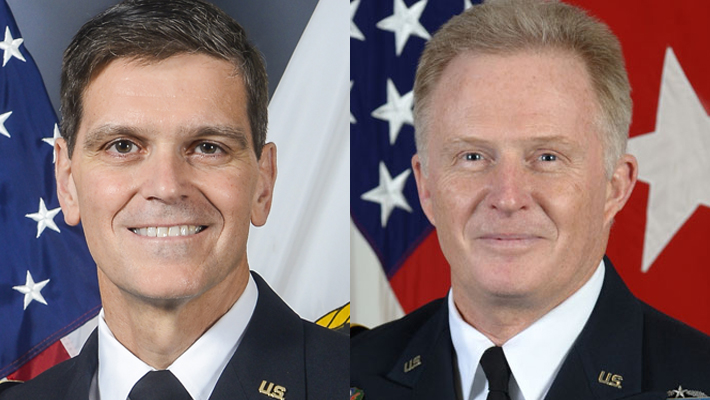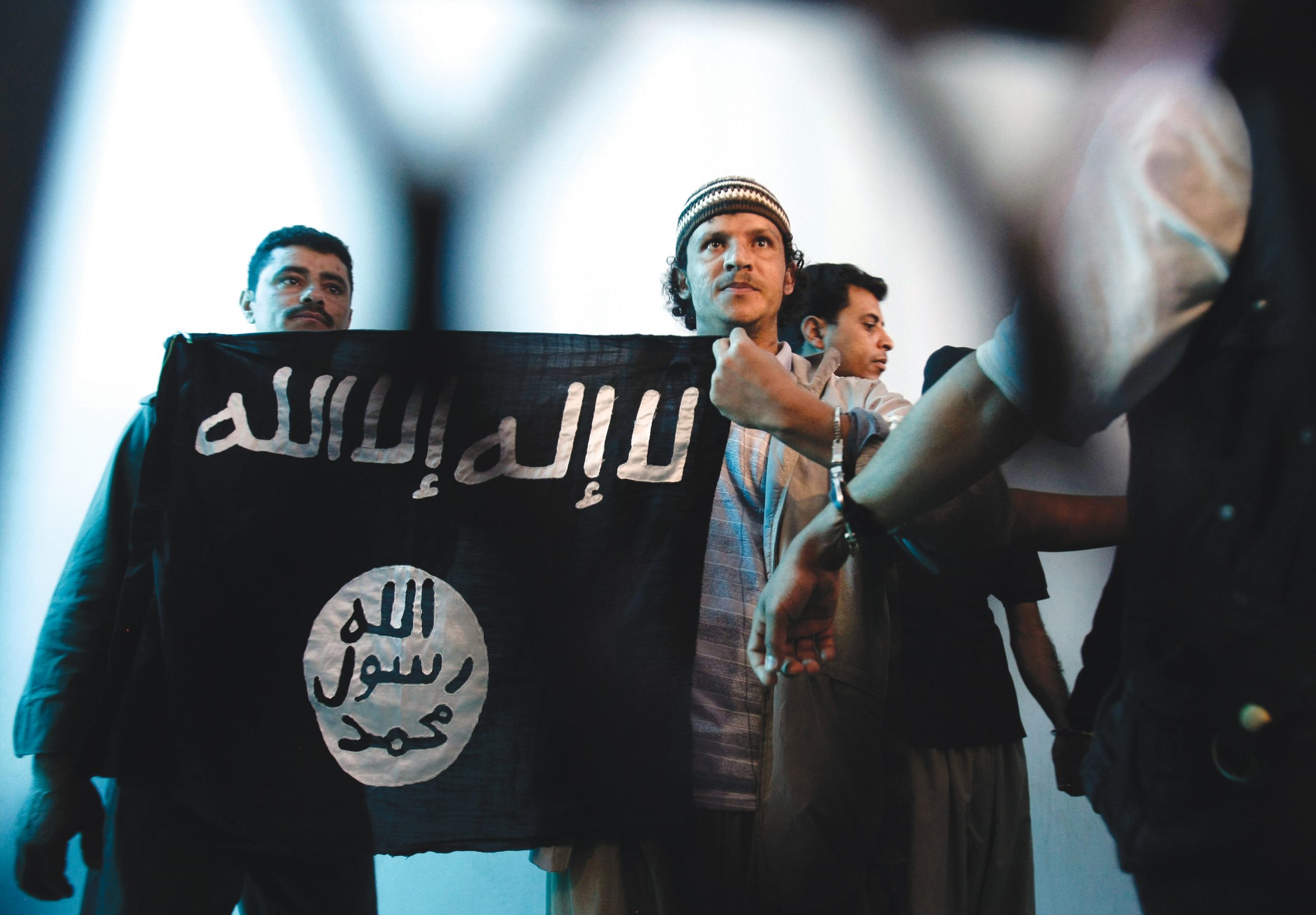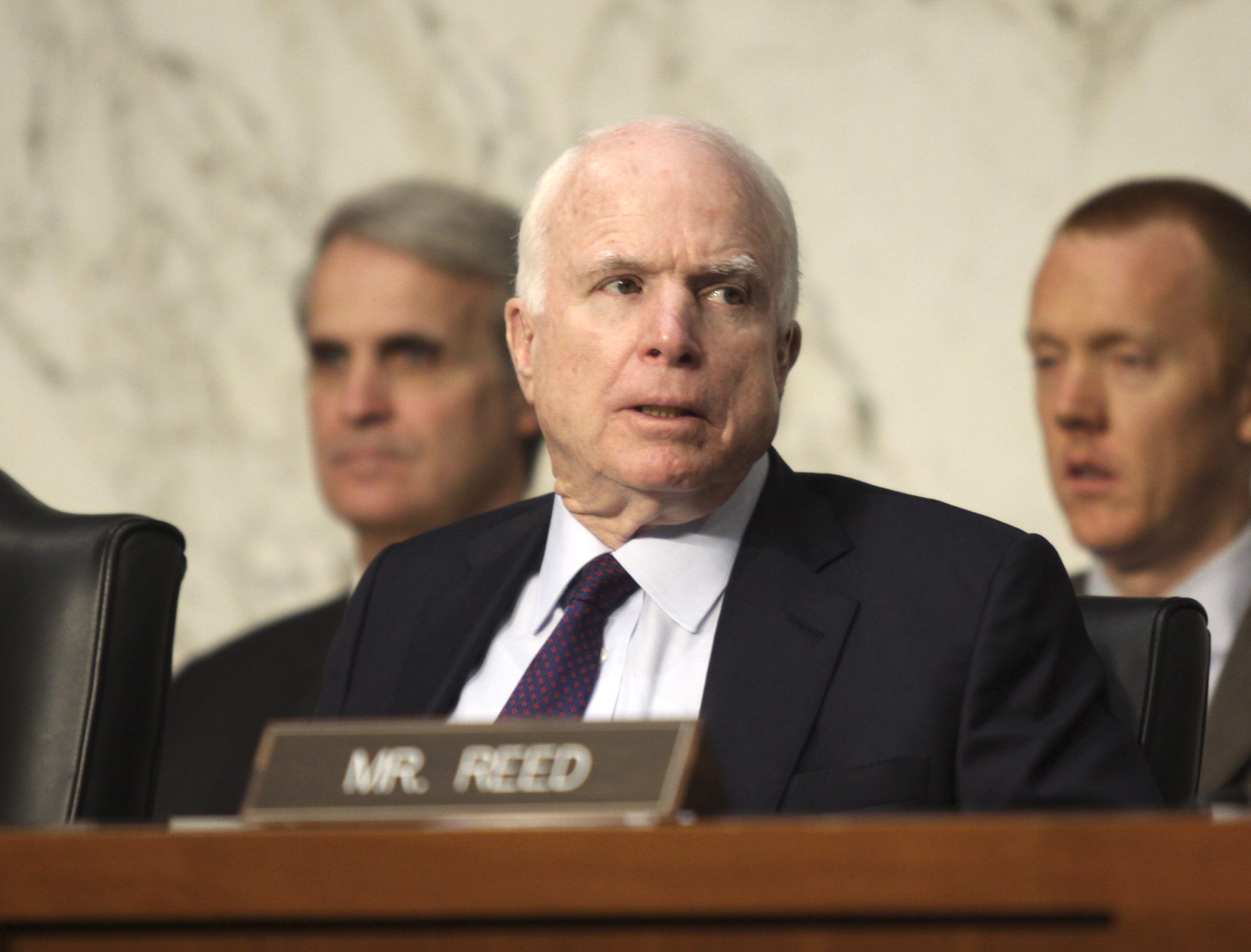Lawmakers are preparing to grill the two special operators tapped to take over the fight against the Islamic State on how their plans will differ from the current strategy. But analysts say any fresh ideas will likely be quashed by a White House that’s known for keeping a tight leash on the Pentagon.
Gen. Joseph Votel, the current leader of U.S. Special Operations Command, has been nominated to serve as the new head of U.S. Central Command, replacing outgoing Gen. Lloyd Austin. Central Command, based in Florida, oversees all U.S. operations in the Middle East.
Lt. Gen. Tony Thomas, meanwhile, was tapped to fill the vacancy left by Votel as the leader of American special operators. Also based in Florida, Special Operations Command directs all elite spec ops troops from the Army, Navy, Air Force and Marine Corps worldwide.
Both men are set to appear before the Senate Armed Services Committee for their confirmation hearing on Wednesday.

Gen. Joseph Votel (left) has been nominated to serve as the new head of U.S. Central Command, and Lt. Gen. Tony Thomas has been chosen to replace him as leader of U.S. Special Operations Command. (US Government)
The two generals seem to have support on both sides of the aisle on Capitol Hill. Sen. Lindsey, Graham, R-S.C., said they were both “good men.”
At the same time, Graham said he was planning to ask for specifics on how Votel and Thomas would take Raqqa in Syria back from the Islamic State.
“This is a strategy that has zero chance of success,” Graham said. “We’re not going to take Raqqa from ISIL under this strategy. Now I want them to tell me where I’m wrong.”
Michael O’Hanlon, a defense analyst with the Brookings Institution, told the Washington Examiner that the change comes at a good time.
“Austin helped staunch the bleeding in regard to Iraq in particular, and to an extent Syria (at least in terms of the ISIL’s growth) but as a result primarily of presidentially imposed constraints, Austin wasn’t able to make more headway than that,” O’Hanlon wrote in an email. “As such, having fresh eyes — though well-informed, experienced eyes — look at the problem in an effort to start to frame new choices (especially for the next U.S. president) will be potentially beneficial.”

Sen. Lindsey, Graham, R-S.C., said they were both “good men,” but said he was planning to ask for specifics on how Votel and Thomas would take Raqqa in Syria back from the Islamic State. (AP)
At the same time, O’Hanlon said he expects the next commanders to still face resistance from the president, who has repeatedly clashed with Pentagon leaders over his handling of military advisers outside of his National Security Council.
“I think the same constraints will largely apply. President Obama is gradually relaxing constraints on U.S. military involvement in the region, but only very gradually,” he said.
Sen. John McCain, R-Ariz., and chairman of the Senate Armed Services Committee, said he plans to grill the two generals on when the U.S. will develop a comprehensive strategy to defeat the Islamic State.
“We still have no strategy,” McCain told the Washington Examiner.
The White House missed a deadline last month set by the fiscal 2016 National Defense Authorization Act that required it to submit a specific plan to defeat the Islamic State to Congress.
Sen. Jack Reed, D-R.I., and ranking member of the Senate Armed Services Committee, said he intends to question the two generals about the entirety of the fight against the Islamic State, including the cybercampaign recently touted by Defense Secretary Ash Carter.

We still have no strategy,” McCain told the Washington Examiner. (AP)
“I think we would want him to talk about the theater of operations, the threats in Central Command and the actions we’re taking in many dimensions, not just airstrikes, but also recently announced cyberoperations, the whole approach to the area,” he said.
McCain said he had met Thomas, but did not know him well. Previous interviews with the general, who now heads the highly secretive Joint Special Operations Command, show a man unafraid to give blunt assessments of the war.
Thomas told an interviewer in April that he was “frustrated” by the pace of the war against the Islamic State and “disappointed” by the tempered U.S. response in a conflict where he saw the U.S. “losing across the board.”
“I’m told ‘no’ more than ‘go’ on the magnitude of about 10-to-1 on almost a daily basis, so I think it will be more sustainable if our workforce, our team, sees the fruits of their labors as opposed to the frustration of we could do more, we should do more, and we can’t. So I have to regulate my own frustration there to make sure it doesn’t trickle down to the force,” Thomas said during an interview at West Point.
